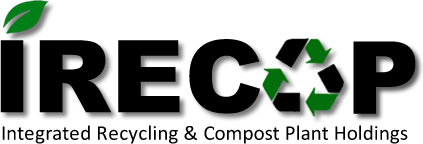- +233-054 400 4486
- info@irecop.com
- Mon - Sun: 24/7
Home > Initiatives > ESG

With pressing global challenges like biodiversity loss, climate change, health crises, and inequality, sustainable practices must be driven by clear end goals.
Businesses face increasing scrutiny regarding their sustainability performance, and the desire to move beyond “greenwashing,” as has been highlighted in ciorcular economy is fueling the push for robust sustainability standards. However, confusion persists about the distinctions between standards, frameworks, rankings, and ratings, particularly their different approaches and purposes.
To clarify, the sustainability landscape can be broadly divided into two groups: organizations that publish standards and those that issue frameworks or guiding principles. While some organizations may engage in both activities, this distinction is helpful for understanding the field.
Standards represent a consensus on the acceptable level of quality for reporting requirements that organizations should meet. They provide specific, detailed criteria or metrics outlining what information should be reported on each topic.
Corporate reporting standards typically share key characteristics: a focus on public interest, independence, due process, and public consultation, which collectively enhance the reliability of the information requested.
Standards represent a consensus on the acceptable level of quality for reporting requirements that organizations should meet. They provide specific, detailed criteria or metrics outlining what information should be reported on each topic.
Corporate reporting standards typically share key characteristics: a focus on public interest, independence, due process, and public consultation, which collectively enhance the reliability of the information requested.
Jospong is a diversed Group its rapid growth has shown important signs of diversity in a wide range of businesses and particularly, the E&S Processing Cluster are actively integrating Environmental, Social, and Governance (ESG) principles into their operations, demonstrating a commitment to sustainability and responsible business practices.
Green Manufacturing: Zoomlion is investing in green manufacturing practices by building intelligent factories and production lines. These facilities utilize eco-friendly technologies such as water-based paint, eco-friendly electrophoresis, and frequency conversion technology, which significantly reduce emissions interest in the whole busoiness wotrldand energy consumption 1. By June 2023, Zoomlion had five intelligent factories and 170 intelligent production lines in operation 1.
Zoomlion has implemented digitalized management across its operations, from R&D to sales and services. This allows for comprehensive, efficient, and environmentally friendly processes.
Green Products: Zoomlion is developing and launching new energy equipment, including pure electric, hybrid, and hydrogen fuel options, for various sectors including construction and agriculture 1. By December 2022, it had launched 156 new energy equipment across 13 product lines 1.
Carbon Emission Reduction: Zoomlion is working to reduce its carbon footprint. Zoomlion is retrofitting 1,000 refuse trucks to reduce carbon emissions. This initiative is expected to save 364,000 tons of CO2 4. The company currently collects and processes 500,000 tons of waste annually, emitting 91,000 tons of CO2 during transport.

Zoomlion is involved in initiatives to foster environmental awareness and promote sustainable practices within local communities. This includes the
Sustainability Integration: Zoomlion integrates sustainability into all aspects of its operations, striving for a balance between nature and industry. They are also prioritizing the judicious use of resources, minimizing waste, and optimizing efficiency to reduce their ecological footprint.
Global Recognition: Zoomlion’s Sino-Belarus Industrial Park was recognized for its commitment to sustainable development practices by the United Nations Global Compact.
Support for Clean Energy Projects: Zoomlion’s construction machinery products have supported mega clean energy projects worldwide 1.
Jospong Group’s Waste Processing Cluster & ESG:
ESG Policy Framework: The Jospong Group has an Environmental, Social, and
Governance (ESG) policy framework that guides its operations and ensures an integrated approach to addressing societal issues that impact investment 4.

Overall ESG Approach:Waste Processing Cluster demonstrate a strong focus on:
Environmental Sustainability: Through initiatives to reduce emissions, promote recycling, and conserve resources.
Social Responsibility: By engaging with communities, creating jobs, and promoting environmental awareness.
Governance: By implementing robust management systems, and adhering to ethical and transparent business practices.
In summary, the JGC is actively addressing ESG concerns through various initiatives, aiming to contribute to a more sustainable future.
Focus on Circular Economy: The Waste Processing Cluster emphasizes the transformation of waste into valuable resources, aligning with circular economy principles [4, 5].
Societal Impact: The Jospong Group is committed to making meaningful differences in communities and is driven by a strong sense of responsibility towards society 5.

Sustainability is the bedrock of our core operations and we are committed to continuous improvements in our activities.
Subscribe to our NewsLetters
Copyright © IRECOP. All rights reserved.
Use this feature to chat with our agent.